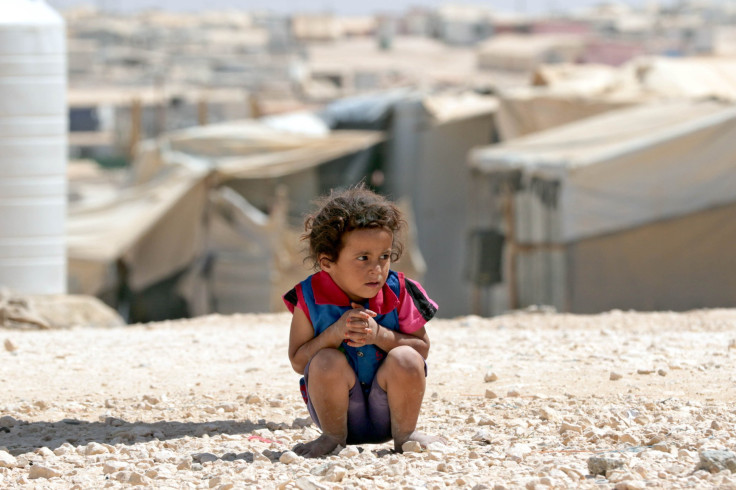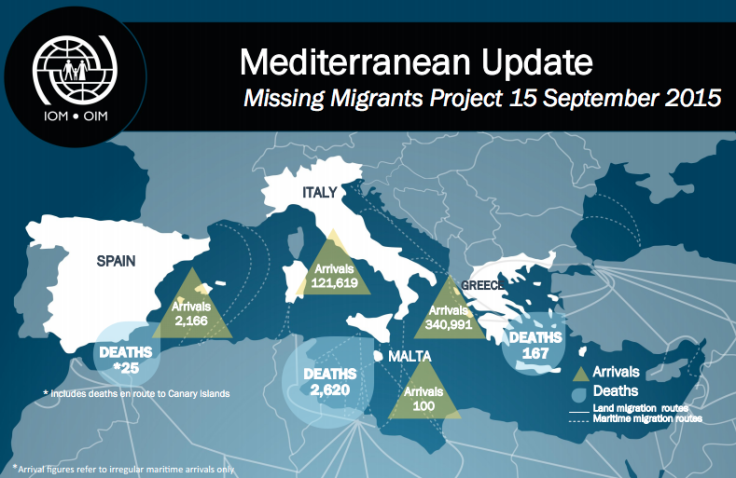Syrian Refugee Crisis 2015: Record Levels Of Humanitarian Aid Still Not Enough To Support Syrian Refugees, UN Official Says

Humanitarian groups have raised only 40 percent of the funds they say they need to support Syrian refugees and internally displaced persons, the United Nations refugee agency said Saturday. While the international community has sent "record amounts" of aid dollars for refugee camps and support programs, aid workers say it's still not enough to match the scale of the rising humanitarian crisis, the Associated Press reported.
Aid agencies requested about $7.4 billion for 2015 to assist Syrians fleeing their country's 4 1/2-year-old civil war. Yet so far, they've received just $2.8 billion, or 38 percent of the total, the U.N. refugee agency told the AP.
The funding shortfall is forcing many aid groups to curtail programs in regional refugee host countries, including Jordan, Lebanon, Turkey, Iraq and Egypt. As conditions in the camps deteriorate and food supplies run low, growing numbers of Syrians are streaming into Europe or even heading home.
"Need has risen so much that even though we are securing record amounts of funding, record amounts of political will and support, nonetheless the [funding] gap has widened," Stephen O'Brien, the U.N. undersecretary-general for humanitarian affairs, told the AP during a tour Saturday of the Zaatari refugee camp, the largest camp in Jordan for Syrian refugees.

More than 4 million Syrians -- about 18 percent of the country's 2013 population -- have fled the country since conflict erupted in 2011. The civil war between President Bashar Assad and rebel groups has expanded to include combatants from the Islamic State group, the terrorist organization formerly known as either ISIS or ISIL.
Syrians made up the largest group of refugees and migrants who have traveled by sea to Europe so far this year. More than 182,000 Syrians have arrived in Greece and Italy since January, or about 39 percent of the 465,000 people who crossed into Europe via the Mediterranean, the International Organization for Migration found in a recent update.
The European Union said it received 213,000 applications for asylum in the second quarter of this year, a third of which came from Afghans escaping the ongoing war with Taliban rebels and Syrians. The majority of asylum seekers sought to go to Germany, which received 80,000 applications in the same period.
As the influx of Syrian refugees into Europe grows, the number of people staying in regional refugee camps is declining. The population at the Zaatari camp in Jordan has dropped to 79,000 people, down by 2,000, since the beginning of August, Hovig Etyemezian, the U.N. director of the camp, told the AP.
Refugees are growing weary after years of staying in the camps with little expectation their lives will improve, he said. The international community "hasn't woken up yet to the need to assist Jordan, the state institutions and the humanitarian agencies, so we can continue serving the refugees here," he told the news organization.
© Copyright IBTimes 2024. All rights reserved.




















